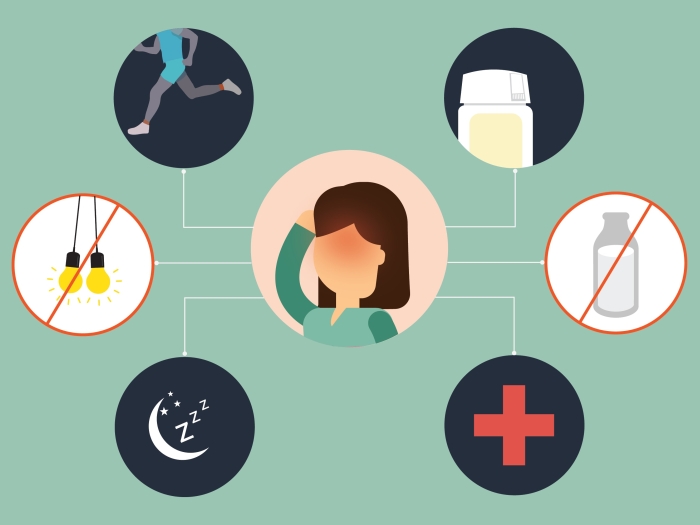A headache expert explains what to take to ease the pain — as well as when to enlist help from a health care provider.
1:00 PM
Author |

One headache can ruin your day. Frequent or severe headaches can be a never-ending nightmare. Whichever headache type you have, you might be wondering how best to treat your symptoms.
SEE ALSO: Which OTC Pain Medication Works for What?
Below, neurologist and headache specialist Lauren A. Aymen, D.O., explains the best over-the-counter drugs and herbal supplements for headache, guidelines for use and when to seek medical care.
Which over-the-counter (OTC) medications do you recommend for headache?
Aymen: Nonsteroidal anti-inflammatory medications (NSAIDs) are more powerful compared to acetaminophen because NSAIDs reduce inflammation. Examples of NSAIDs include Motrin, Aleve or Advil. I tend to prefer Aleve (Naproxen).
Do you recommend a certain strength?
Aymen: In terms of over-the-counter medications, strength is somewhat less important. I usually recommend that patients take the maximum dose as directed on the bottle. More importantly, the medication should be taken early once the headache begins.
How much over-the-counter medicine is too much?
Aymen: I tell patients they should avoid taking over-the-counter medications more than two to three times per week. Frequent use may cause side effects or even lead to medication-overuse headaches. If a patient requires an over-the-counter medication more than a few times per week, he or she should be seen by a physician. There are prescription medications that can be taken daily to reduce the frequency and severity of one's headaches.
Are there nonprescription drugs or herbal supplements to take to avoid the possible side effects of over-the-counter medications?
Aymen: For patients experiencing headache at least 15 days per month, I recommend a trial of magnesium. There is some evidence that patients with migraine may have lower levels of magnesium within their brain. Measurement of magnesium in someone's blood does not accurately correlate with magnesium levels in the brain. Magnesium comes in several formulations, and I prefer magnesium oxide or magnesium glycinate. The only side effect to look out for is loose stool or diarrhea.
SEE ALSO: Opioids: When the Harms Outweigh the Benefits
Other frequently used supplements for headache prevention include riboflavin (vitamin B-2), Coenzyme Q10 (CoQ10) and omega-3 fatty acids. It's important to always let your physician know about any supplements you are taking.
When should someone seek medical care?
Aymen: When OTC medications or supplements are ineffective and/or headaches are impacting a person's ability to perform activities of daily living, he or she should seek treatment from a physician.

Explore a variety of health care news & stories by visiting the Health Lab home page for more articles.

Department of Communication at Michigan Medicine
Want top health & research news weekly? Sign up for Health Lab’s newsletters today!





